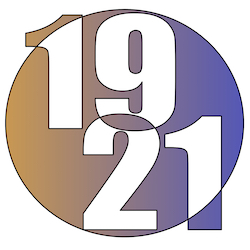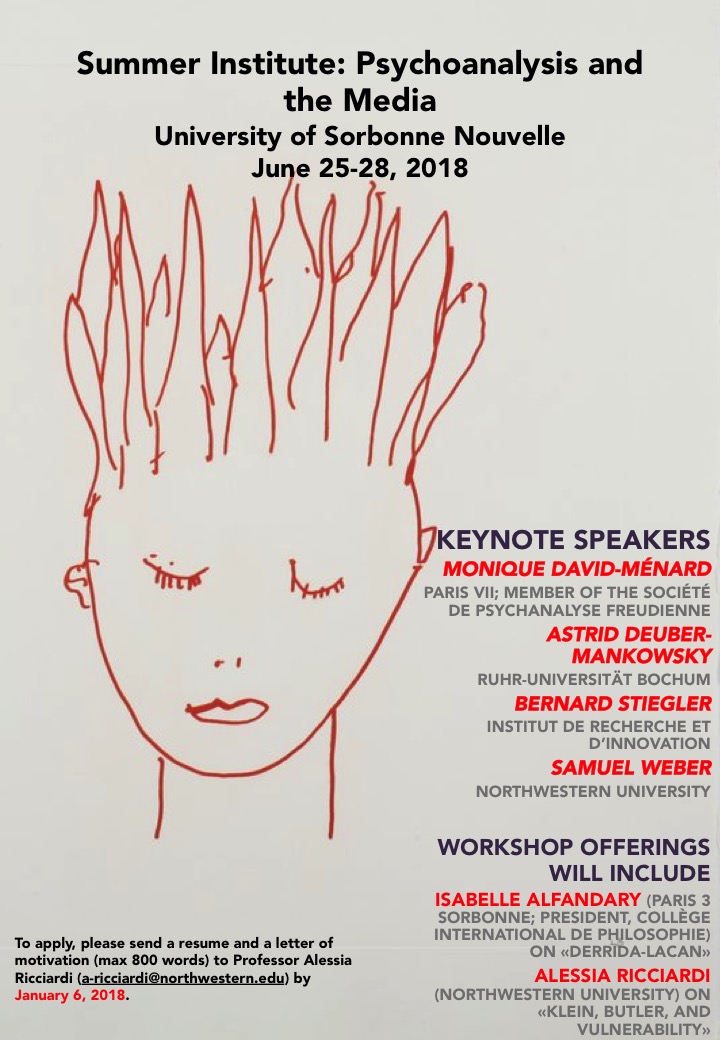Summer Institute: Psychoanalysis and the Media
Freud’s discovery of the unconscious more than a hundred years ago triggered not just the development of a clinical technique, but also a series of epistemological, critical, poetic, aesthetic, political, social, and anthropological effects. The summer institute will address the impact of psychoanalysis on what it does not consider to be its primary target: culture, as expressed by the media in the broad sense of the word, from literature, cinema, and the performance arts to social media. “All the arts are languages, and all languages are media that are their own message,” Kittler writes in The Truth of the Technological World, 28. The institute seeks to elicit a conversation between psychoanalysis understood as theory, as clinical practice, and as a way of addressing the emotional spaces opened up by the media at a personal and collective level. The state of immersion in the digital world creates not only opportunities but disorientation and loss of genuine, interpersonal participation. A key task of the institute will be to discuss issues of identity, contagion, and cultural and political distress. Psychoanalysis has been quite isolated over the past decade and closed to non-psychoanalytical circles, having disengaged itself from many such debates. Yet psychoanalysis does not only make sense in a clinical context, but increasingly in a cultural sphere saturated by enigmatic, transferential processes.
The inaugural meeting of the summer institute in 2018 will focus on transference and the media. A concept elaborated by Freud in his case-study of Dora, transference belongs not only to psychoanalysis but has also been significant to the field of media studies (Medientheory). The keynote speakers at the first meeting of the institute will be Monique David-Ménard (Prefesseure Émérite, Paris VII; member of the Société de Psychanalyse Freudienne), Astrid Deuber-Mankowsky (Ruhr-Universität Bochum) on «Transference and Post Cinema», Bernard Stiegler (Institut de Recherche et d’Innovation) on «Métapsychologie et rétention tertiaire dans le capitalisme pulsionnel», and Samuel Weber (Northwestern University) on «Psychoanalysis and the Mediacy of the Media». The workshops, each of which will meet twice during the week, will include Isabelle Alfandary (Paris 3 Sorbonne; President, Collège International de Philosophie) on «Derrida-Lacan» and Alessia Ricciardi (Northwestern University) on «Klein, Butler, and Vulnerability».
The summer institute will associate a cluster of universities through cooperation between the following universities: Sorbonne-Nouvelle, Northwestern University, and the Ruhr-Universität Bochum. It will take place each year late June, early July at one of these participating academic institutions, in a different location. The 2018 edition of the summer institute will take place in Paris at the Sorbonne Nouvelle June 25-28.
Format
- Senior and junior researchers will be running workshops on texts and questions that have been circulated in advance.
- A plenary lecture will be given each day of the week.
- The summer institute will last for four consecutive days starting Monday and ending Thursday.
- It will be run by psychoanalysts as well as researchers and teachers from all disciplines.
- All workshops, lectures, and discussions will be in English.
Requirements
- Applications are due January 6, 2018.
- PhD students and post-doctoral students are welcome to apply.
- Applicants are invited to submit a letter of motivation (max 800 words) as well as a resume.
- The summer institute is free of charge to all participants. Participants will have to take care of their travel expenses to Paris and accommodation.
Applications should be sent by email to Professor Alessia Ricciardi (a-ricciardi@northwestern.edu). Please contact Professor Ricciardi if you have any questions.

